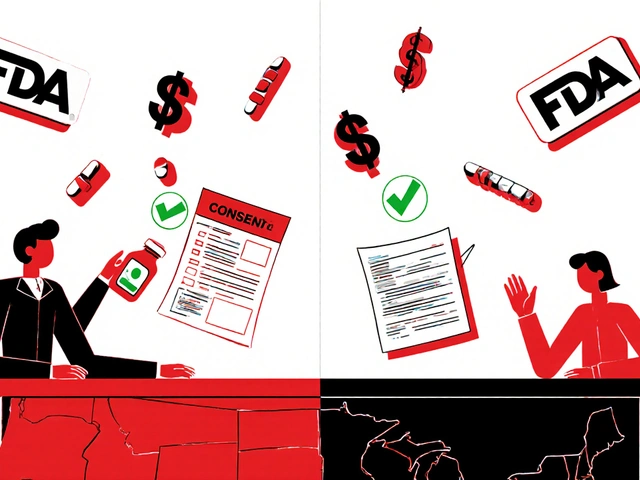Erosive Esophagitis: What You Need to Know
Erosive esophagitis happens when the lining of your esophagus gets damaged, usually by stomach acid. If you’ve ever had that burning feeling in your chest after eating or lying down, you might know the discomfort it causes. This condition isn’t just about heartburn—it means acid has actually irritated or worn away the esophageal lining, causing pain and sometimes complications.
So, what causes this? Most often, it's acid reflux or GERD (gastroesophageal reflux disease). When stomach acid backs up into the esophagus regularly, it can inflame the tissue and lead to erosions or ulcers. Other things like infections, certain medications, or even injury can make the esophagus inflamed, but acid reflux is the main culprit for erosive esophagitis.
Spotting the Symptoms of Erosive Esophagitis
What should you watch for? People with erosive esophagitis usually feel burning chest pain (heartburn), swallowing trouble, or a sour or bitter taste in their mouth. Some even get chest tightness or pain that feels like a heart attack, so it’s important to get checked out if you notice these signs. Bleeding can happen too, so black stools or vomiting blood are red flags to see a doctor right away.
Don’t ignore frequent acid reflux or persistent chest pain. Over time, the damage can worsen and make swallowing painful or cause scarring that narrows your esophagus.
How to Manage and Treat It
The good news? You can often control erosive esophagitis with lifestyle changes and medicine. Avoid foods that trigger reflux like spicy dishes, caffeine, or alcohol, and try not to eat big meals right before bed. Sleeping with your head raised can help keep acid down where it belongs. Medications like proton pump inhibitors (PPIs) are common; they cut stomach acid and allow your esophagus to heal.
If you find relief doesn’t come easily or symptoms worsen, it’s time to see a doctor. They might recommend testing or stronger treatments. Staying on top of this condition is key to avoiding serious problems like Barrett’s esophagus or strictures.
Understanding erosive esophagitis means you’re one step ahead in keeping your esophagus healthy. Watch for those key symptoms, tweak your habits, and ask a healthcare provider about the right treatment for you.





